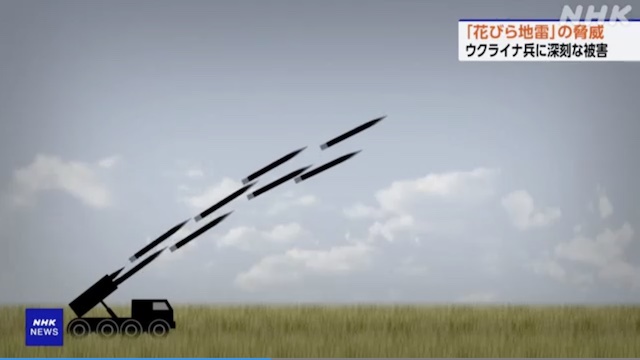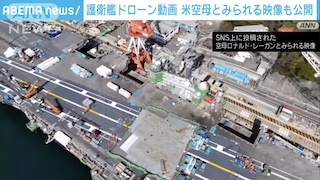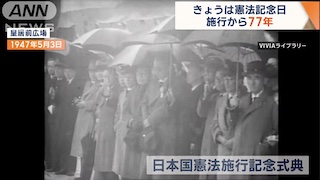TOKYO, Apr 14 (News On Japan) - Japan is leading the support for mine clearance efforts in Ukraine, providing advanced equipment such as high-performance metal detectors that can see underground with radar and large mine-clearance machines that can remove mines quickly.

Japan is also advancing human resource development, including conducting training sessions in Cambodia, where the effects of mines have persisted for a long time, to impart skills to Ukrainian demining workers. On April 4, in conjunction with International Mine Awareness Day, Japan provided 570 mine detectors and 475 protective suits through the United Nations Development Programme (UNDP). Estimates suggest that clearing the widespread mines could take several hundred years, and Japan plans to continue technical cooperation to promote the production of necessary equipment and the development of human resources within Ukraine.
Kuninori Matsuda, the Japanese Ambassador to Ukraine, stated, "Mine detection and clearance is an area where Japan has the most experience and know-how. We want to challenge new areas of support, such as developing and producing equipment together within Ukraine."
the threat of anti-personnel mines known as "petal mines" is causing serious harm to Ukrainian soldiers. According to Ukraine's State Emergency Service, the area potentially affected by mines, including those laid due to the military invasion, is approximately 156,000 square kilometers, which corresponds to over a quarter of the country's territory. The number of soldiers killed or injured by mines has not been disclosed, but the damage is believed to be significant. Civilians are also affected; as of this month, 258 people have died and 626 have been injured due to mines and other explosives.
The threat of "petal mines," which are small, about 12 centimeters in size, and scattered from the air using rocket-propelled grenades, is particularly emphasized at the front lines. These mines activate minutes after hitting the ground and are difficult to detect as they blend in with grass and other vegetation. Touching or stepping on them can cause the liquid inside to leak out and explode. The State Emergency Service notes that these mines are distinctive for their widespread dispersal; over 300 can be loaded into a single rocket, and a multi-launch rocket system can scatter nearly 5,000 mines over an area of 150 hectares. Last year, as the Ukrainian army pushed forward with a counteroffensive, the Russian army heavily used these mines, leading to consecutive injuries among Ukrainian soldiers in the eastern Donetsk region and the southern Kherson region.
Ivan Shepelyev, head of the mine clearance division at the State Emergency Service of Ukraine, emphasized the threat of "petal mines," stating, "The most dangerous and cunning mines are the 'petal mines.' If one soldier steps on a mine, his comrades attempting to help are also at risk from the many mines around them."
Ukrainian soldier Dmytro Mykhailovsky (40) suffered a severe injury last September at the front line in Bakhmut, Donetsk region, losing part of his right leg to a "petal mine." Mykhailovsky recalled being ordered to move at midnight to avoid Russian detection and stepping on a "petal mine" while navigating in the dark with the guidance of a radio. He said, "It wasn't a loud explosion but a muffled 'pop.' There was no shock, just pain. When I fell, someone said, 'Your leg is gone.' That's when I realized it was a 'petal mine.'"
Earlier that day, Mykhailovsky had seen Russian forces launch rockets scattering "petal mines," and soon after, he heard screams from another group operating nearby. When he was taken for treatment after being injured, there were two other soldiers who had also lost parts of their legs. Mykhailovsky underwent six surgeries to fit a prosthetic leg to the lost part of his limb. He is now working on rehabilitation at a facility in the western Vinnytsia region to return to everyday life.
"Petal mines" are causing numerous injuries in Ukraine, with many people losing parts of their limbs. At a facility in Vinnytsia that manufactures prosthetics and offers rehabilitation support, Valentin Sarmatov, the facility's director, said that before the Russian military invasion, most of their clients were people who lost their legs due to accidents or illness, but now nearly 30% are victims of mines. Particularly since the Ukrainian army's counteroffensive, the number of soldiers visiting the facility with injuries, many of whom speak of the threat of "petal mines," has increased.
Sarmatov shared, "When the front line shifts to an offensive, soldiers come out of their cover to attack enemy positions. According to the soldiers, there are places heavily mined by the enemy, and that's where they get injured."
The facility's doctors note that injuries from "petal mines" are characterized by the loss of specific body parts, such as toes or heels, rather than fatal wounds. It is challenging to create prosthetics that adapt to such partial injuries, often requiring amputation surgery to fit a prosthetic leg for walking.
Dr. Volodymyr Danylyuk, a physician at the facility, explained, "There are not many types of prosthetics. It is not easy to select and adapt the right prosthetic for the injured part."
Source: NHK















